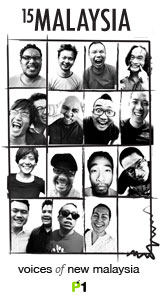…many roads we take
Some to joy, some to heartache
Anyone can lose the way
And if I said we could turn it back
Right back to the start
Would you take the chance and make the change?
- Kate Winslet, What If
Too often we reflect our past mistakes with regrets and resentment. It would be easy to say we regretted them but what does it really mean when we had no choice for our actions were bound by the conditions that existed at that time. This nevertheless does not imply that past actions or the consequences of such actions are morally justified as they are volitional or deliberate undertakings and therefore, cannot be reversed. Conversely it also does not imply we have remote locus of control over the future which is often constraint by conditional factors and external forces. Simply it manifests the need to contemplate the past for a review of performance and to build on existing paradigm for the betterment without over-projecting future capabilities or creating expectation beyond current capacity. This neither suggests one to be pessimist nor optimist, but a realist to foresee and anticipate the uncertainty of the future with an open heart coupled with reasonable amount of skepticism.
The note above contains essence of and is inspired by the teachings of Jewish Mysticism which I personally find it relevant in today's context of dynamic environment where self-help through rationalization is paramount in our pursuit of happiness. Rationalization is nevertheless subject to our cognitive bias on perceived facts and bound understanding of the nature. Therefore it does not in whole validate pragmatism as an ethically justifiable approach especially when it compromises religious and individual moral stance. In conclusion, adopting an eclectic approach or the middle path is perhaps the best guide to life. Welcoming 2010 and beyond! Wishing you all the best, and good luck!
 "look at this ocean of minds... if we don't swim in it, why are we here for?"
"look at this ocean of minds... if we don't swim in it, why are we here for?"

